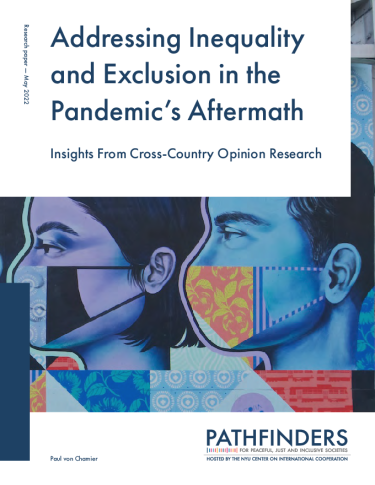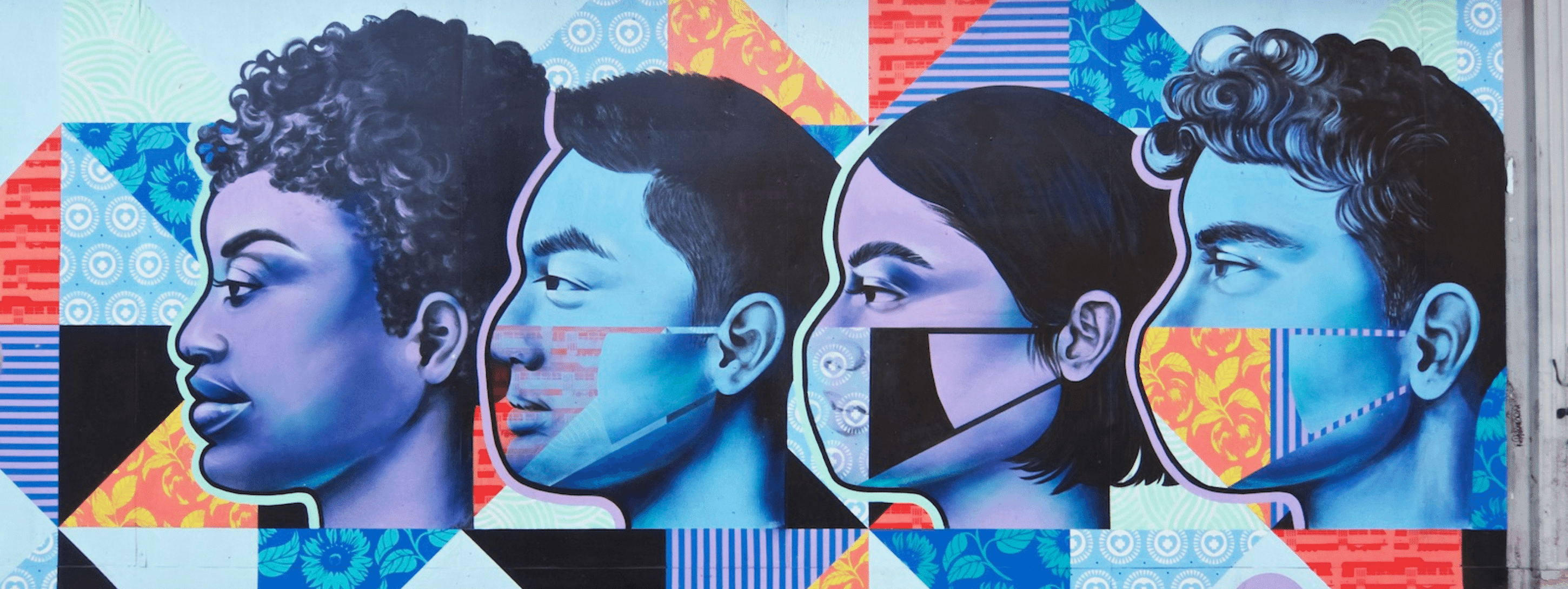Addressing Inequality and Exclusion in the Pandemic’s Aftermath: Insights From Cross-Country Opinion Research
Contributors: Paul Von Chamier
During the first quarter of 2022, signs continued to emerge that suggest the most acute stage of the pandemic is slowly drawing towards its end. COVID-19, a black-swan event that disrupted the world, brought into sharp focus systemic issues surrounding inequality and exclusion that well predated 2020. Societies that experienced deeper societal inequities before the crisis ended up being more vulnerable to both the infection spread and the related economic recession.

The past two years also demonstrated that inequities are neither a high- nor low-income country issue, and that tackling them is a shared global necessity. As governments now engage in laying out policies geared toward the post-pandemic recovery, there is a rare window of opportunity to recalibrate priorities in a way that responds to updated social sensitivities.
In order to achieve this goal, we need to better understand current views of the general population, including their main concerns and preferences regarding public policies going forward. To that end, Pathfinders has commissioned a global opinion survey. Over 17,000 adult respondents across eight countries representing diverse world regions and income levels—Canada, Costa Rica, Mexico, Republic of Korea, Sierra Leone, Sweden, Tunisia, and Uruguay—were polled by Pathfinders and Kantar between June 4 and July 23, 2021. We then followed the poll with in-depth interviews and focus groups in August 2021, involving over sixty participants across four of these countries: Canada, Costa Rica, Sierra Leone, and Tunisia.
The Pathfinders’ polling measured public concern about inequality, and the popularity of different possible policies to address the challenge before the cost-of-living crisis hit. The findings demonstrate an acute awareness of inequality, and deep-seated sense of unfairness whether looking at opportunities or who pays taxes. The headline result of the poll was the strength of peoples’ feelings on divisions within their societies, with eight in ten believing there are divisions causing fault lines in their society. In all the countries polled except Uruguay (narrowly, 49 percent), an absolute majority of respondents felt that too little is being done to address divisions.
There were strong ideas of class, urban, and ethnic or racial privilege. 67 percent of people across countries surveyed thought that being born into a low-income family was equivalent to being born with a disability. The second biggest perceived factors for life chances was being born in a rural area, to a particular ethnic group, or to a family that came to the country (with roughly equal proportions across all surveyed countries). There was also an overwhelming belief that policymaking and power had been captured by the wealthy, with the majority in every country believing those on higher incomes and big corporations had far more political influence than others.
This paper offers a potent combination of quantitative insights and individual testimonials on social sentiment eighteen months after the COVID-19 pandemic’s global spread and ideas for leaders and decision makers on how this sentiment can be best mapped onto policy action.
Read the full paper: Addressing Inequality and Exclusion in the Pandemic’s Aftermath: Insights From Cross-Country Opinion Research
This research paper is part of the Pathfinders Grand Challenge on Inequality & Exclusion and builds upon their flagship report, From Rhetoric to Action: Delivering Equality and Inclusion. More information about this initiative can be found here.